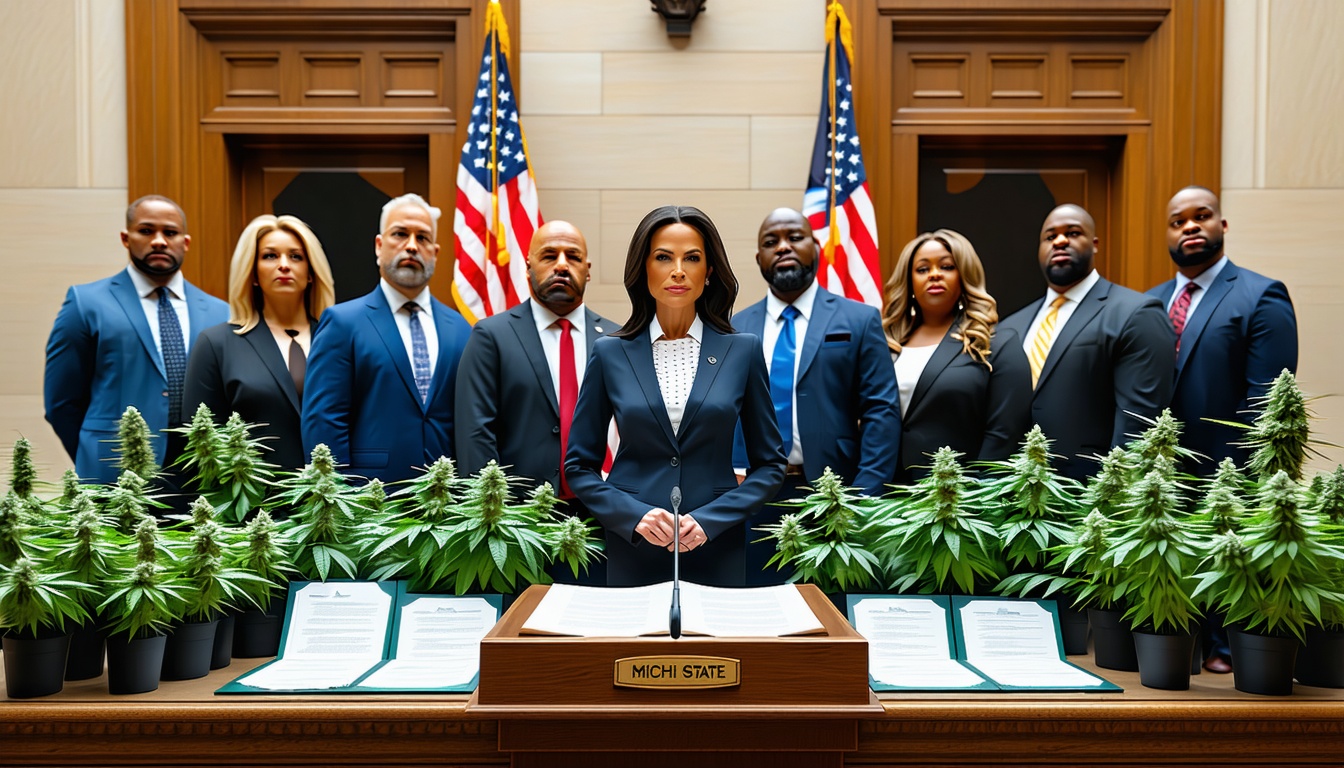Indiana Lawmakers Consider Ban on Marijuana Billboards
As neighboring states like Michigan have legalized marijuana, the issue of advertising for the drug has become a concern for Indiana lawmakers. On Tuesday, the Senate’s Homeland Security and Transportation Committee debated an amendment to House Bill 1390, which would ban billboards in Indiana from advertising marijuana, which remains illegal in the state.
The amendment, proposed by State Representative Jim Pressel (R-District 20), aims to prevent billboards from promoting illegal products, including marijuana, listed on Indiana’s controlled substance list. Pressel cited the proliferation of billboards in his home county advertising marijuana dispensaries across the state line, which he believes sends a mixed message to consumers.
However, representatives from the advertising and billboard industries pushed back against the amendment, arguing that it would have a negative impact on business and infringe on the First Amendment. Blair Englehart, with the Englehart Group, claimed that billboards are not a significant factor in people’s decision to purchase marijuana, and that the amendment is about the state picking winners and losers.
Ron Braunmeyer, with the Outdoor Advertising Association of Indiana, pointed out that people can easily find marijuana dispensaries through online search, making billboards less of a concern. He suggested that the focus should be on ensuring billboards are placed at a safe distance from schools and parks, as is already the case for billboards advertising alcohol.
The amendment’s author, Pressel, responded to concerns about the First Amendment by citing a recent court case in Mississippi, which found that the First Amendment does not apply when it comes to banning speech regarding illegal activities like selling marijuana.
The debate highlights the ongoing tension between the desire to regulate advertising for illegal activities and the need to protect free speech. As the issue continues to unfold, lawmakers will need to weigh the competing interests and concerns.












